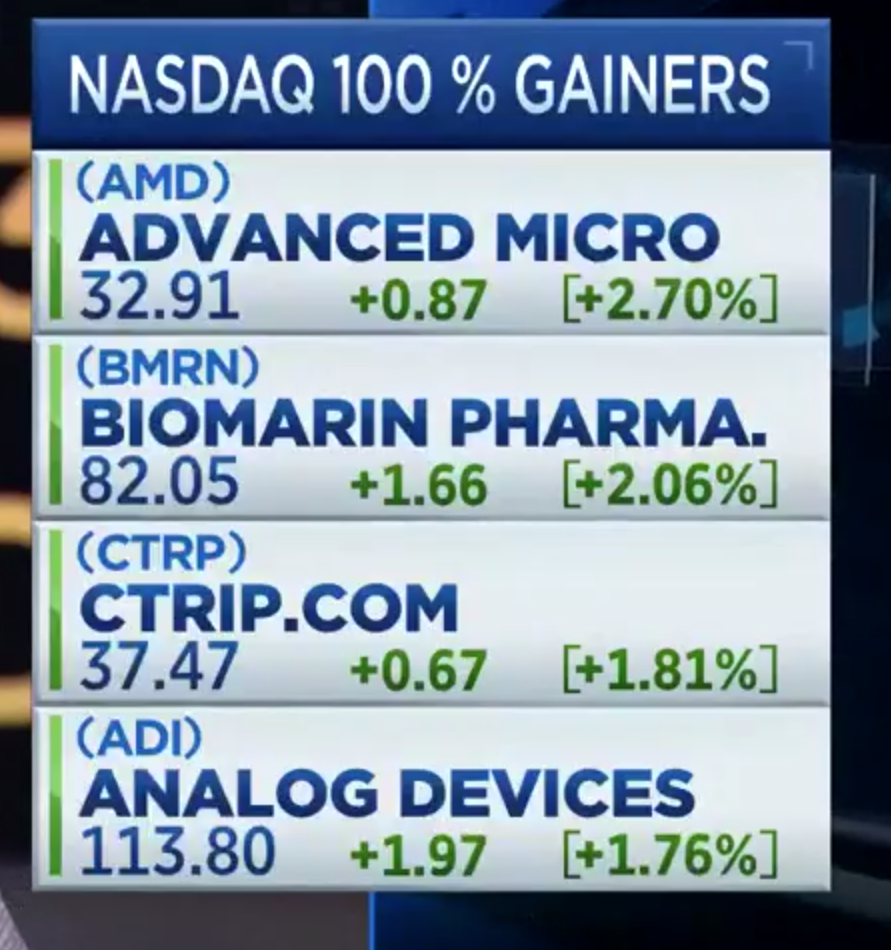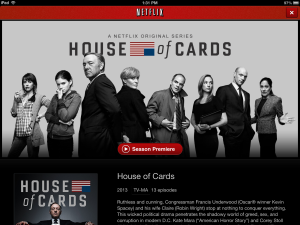
Saw this flash up on today’s Halftime Report on CNBC. Not sure what it’s referring to. 100% in what period of time? A year? Year to Date? Don’t know. What I do know is that stocks that gain 100% in a year are worth taking a look at. I’m not saying it’s an immediate buy signal, but rather a good jumping off point for further research. I enjoy research though. I do happen to own AMD in my IRA. No special reason. I think I bought it about 2 years ago (May 3, 2017 for 10.47 to be exact) because somebody recommended it on CNBC. I’ve gotten a triple out of it which is great, but it’s not the typical stock I own. I’m kind of in the Peter Lynch school of things I like and use or looking for trends (Globalization, Digitization, and Urbanization for instance. Or the baby boomers retiring. So things like Healthcare and Vacations.
So that was a flyer for me. But it does keep me interested, and so far whenever somebody talks about AMD, I listen, and I’ve always heard good things, so I keep holding, although the company itself doesn’t hold any special place in my heart.
The other three, I have no idea. I might do some research though. (Just looked up Ctrip.com as it fits into the vacation paradigm, but just found out it’s a Chinese company, so I’ll pass. I use to think it was passe to only own American companies, but after getting burned on a Chinese stock and an Indian stock, I’m sticking to American at least for now. I do have one Israeli stock $TSEM and one Brazilian stock $CZZ from long ago purchases.
If you want a complete list of every listed security that has a gain of 100% or more in the last year (as of the closing price on July 9th, 2019) here is a great tool/website for doing such research: https://stockrow.com/screener/245e1b2b-08ec-4e3c-96e4-46efc80c5969
I kept the valuation to 1 billion and above, and there is a surprisingly manageable list there of about 30-40 stocks. If nothing else it gives you a great snapshot of what the trend is in the last year or so.

